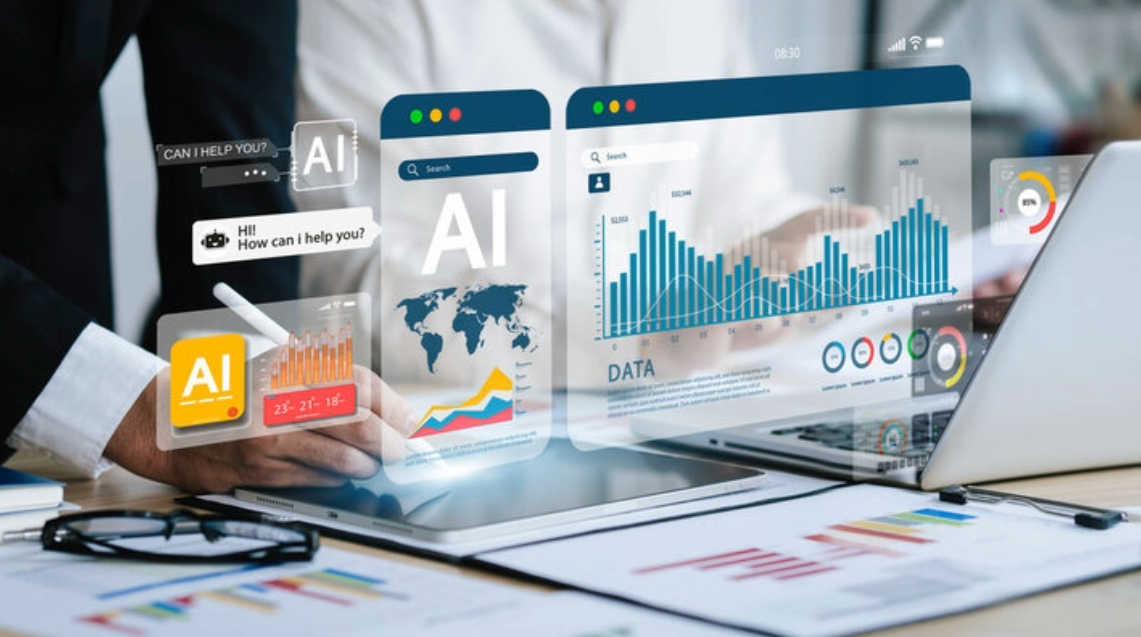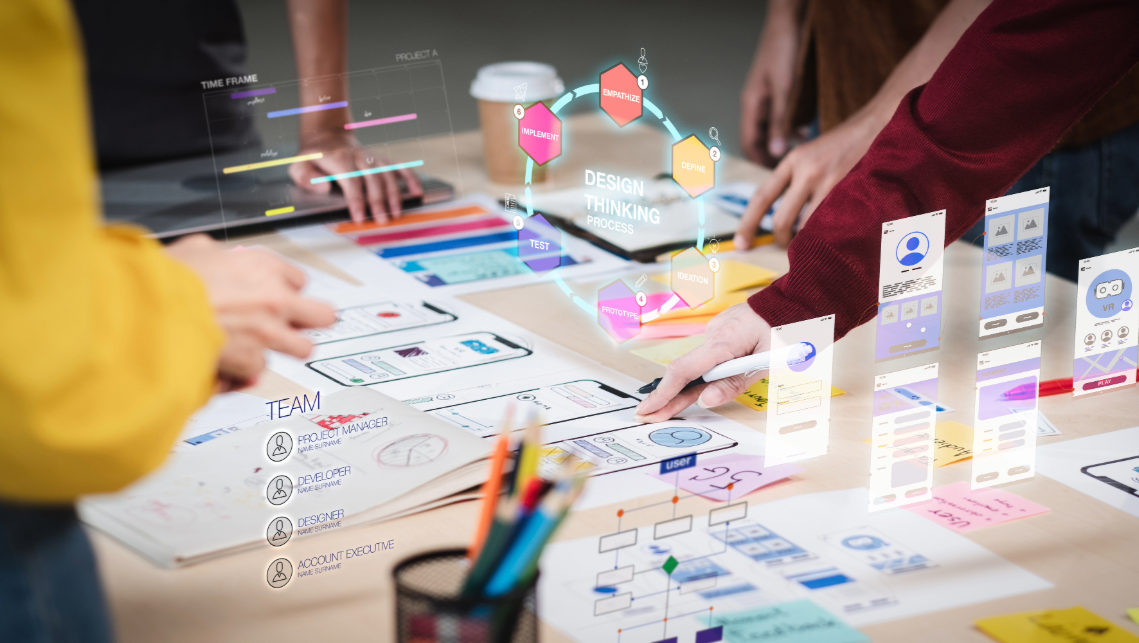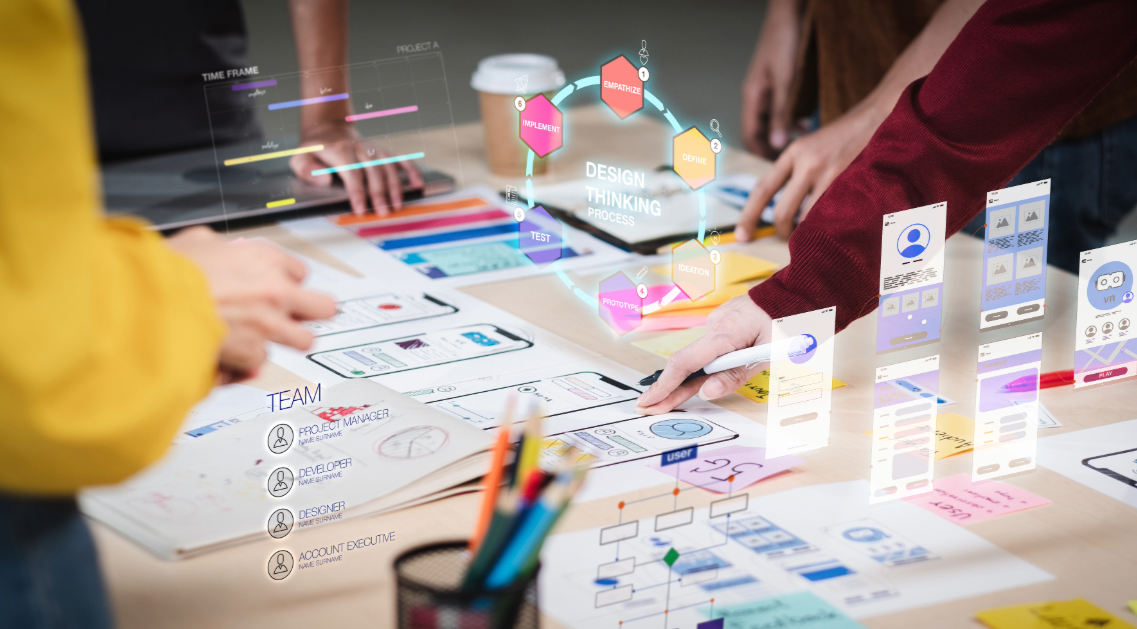The role of AI in marketing automation is transforming how businesses connect with their audience. Imagine hyper-personalized customer experiences driven by AI, where tedious tasks vanish. AI won’t replace us; it amplifies our ability to automate marketing tasks and make data-driven decisions.
The role of AI in marketing automation helps deliver the right message to the right customer at the right time. It’s a game-changer, but where do we start? This article will explore AI’s role in marketing and how you can use it to enhance your marketing strategies.
How AI is Changing Marketing

Marketers used to spend countless hours manually analyzing data to understand customer behavior and tailor their marketing campaigns. Now, AI does the heavy lifting by analyzing large datasets in seconds, enabling marketers to move beyond simple segmentation. AI facilitates hyper-personalized marketing experiences that cater to individual customer needs.
AI’s Power: Beyond Automation
Marketing automation streamlines tasks like social media posts, email campaigns, and ad delivery. AI supercharges these processes. It doesn’t just perform actions but learns and improves from the data it analyzes. AI marketing automation tools offer features like image recommendations to help marketers make the most of their digital marketing efforts.
AI marketing tools analyze customer behaviors, past campaign results, and market trends to anticipate future outcomes. Statista predicts the market for AI in marketing could exceed over $107 billion by 2028. This is no surprise considering the massive amount of data generated daily. According to Domo, over 2.5 quintillion bytes of data are generated each day. AI helps us make sense of this data by identifying patterns and opportunities for improvement, allowing it to adjust campaigns in real-time. No human team can match AI’s agility regarding data analysis.
Predictive Analysis – A Marketer’s Secret Weapon
Imagine launching a new campaign, and your AI tools flag a new emerging trend indicating a shift in consumer preference. You’d want to be ahead of that curve. Traditional marketing requires you to wait for reports and react, which could take days or weeks. AI-powered predictive analytics delivers these insights as they happen. This gives you time to capture new opportunities and pivot before your competitors. Instead of simply reacting to market changes, AI allows you to adapt proactively.
For instance, using AI marketing tools for social media lets you receive real-time notifications about trending topics before they go viral. You can leverage these insights to become an early participant in these conversations, maximizing your reach and impact. In addition, AI provides valuable data regarding audience segmentation, content preferences, and optimal posting times.
Examples of AI Applications in Marketing Automation

AI is a powerful tool for marketing. Let’s look at some real-world examples of how it’s being used.
1. Personalization Like You’ve Never Seen It Before
Today’s consumers demand personalization from brands. McKinsey’s 2022 study shows that personalization is no longer optional; over 70% of consumers expect personalized experiences when interacting with a brand. A classic example is receiving emails suggesting products based on your purchase history. That’s AI analyzing your behavior and curating relevant product recommendations to entice you to make another purchase.
Amazon’s product recommendations are a great example. These are not random; they are powered by AI algorithms. These AI algorithms analyze product reviews, purchase history, and browsing patterns to recommend products a user is statistically most likely to buy. Amazon uses AI marketing tools to provide a personalized experience for each customer. This level of personalization wouldn’t be possible without customer data.
While many users have concerns about data privacy, studies show that customers are willing to share their data as long as it leads to more value and the brand maintains trust. An Accenture study found that 92% of customers who seek personalized experiences are open to sharing their data.
2. The AI-Powered Email Marketing Campaign
AI enables email marketers to go beyond generic newsletters by creating personalized email marketing campaigns that convert. AI-powered platforms like Salesforce Einstein use predictive intelligence to send emails at times individual customers are most likely to open them, which improves click-through and open rates. In addition, these platforms leverage machine learning and other AI algorithms to predict customer behavior and leverage those insights to personalize email content in real-time. This could include offering personalized discounts, timely reminders, or relevant product recommendations.
3. Programmatic Advertising Takes a Leap Forward
In programmatic advertising, AI plays a crucial role, going beyond optimizing ad spending. AI is now being used to identify which advertising channels are most likely to generate a positive return on investment. AI-powered advertising platforms like Google Ads and Facebook Ads analyze user behavior in real-time to dynamically adjust bidding strategies to maximize conversions and reduce wasted ad spending. Instead of setting static budgets, marketers use these AI tools to deliver personalized ads to target audiences, ensuring that marketing messages resonate with the target audience.
4. The Future of Customer Service is Now
Navigating automated phone menus can be a frustrating experience. AI-powered chatbots are changing the customer service game. Today’s chatbots use natural language processing to hold conversations that feel natural. These chatbots offer immediate assistance and don’t rely on scripted responses. They provide 24/7 support in a conversational, helpful tone, boosting brand loyalty. Businesses can leverage chatbots to identify emerging trends and customer pain points. They can track customer inquiries and use these insights to address recurring issues.
Reskilling Your Marketing Team for an AI Future
As AI plays a central role in marketing, companies must invest in upskilling their marketing teams to leverage AI’s full potential. The transition might seem daunting to some, but instead of viewing AI as a threat, marketers should view AI as an opportunity. AI augments marketing teams; it doesn’t replace them.
Investing in upskilling ensures your marketing team isn’t afraid to use AI. Rather than replacing your marketing team, it makes them more efficient. Marketers should be given opportunities to learn how to interpret data from AI tools. Give your marketers access to workshops and training on how to use different AI platforms, providing them with the space to explore the capabilities of AI.
FAQs About the Role of AI in Marketing Automation

What is AI’s role in marketing automation?
AI adds intelligence to marketing automation, giving marketers the ability to ditch repetitive, rote tasks to focus on creating targeted campaigns that deliver results. AI automates workflows, allowing for better personalization and enabling marketers to make data-driven decisions. Ultimately, AI tools help marketers improve efficiency and drive business growth.
What are some challenges marketers may face?
Marketers need to stay adaptable and continually upskill to keep up with advancements in AI. Marketers must also consider data privacy, transparency, and the ethical use of AI when using AI solutions. Building and maintaining trust with customers requires using data responsibly.
How should companies prepare for AI implementation?
Companies must have the right skills and expertise to analyze, interpret, and implement output from their AI marketing solutions. Instead of focusing solely on purchasing software, businesses need to invest in training their teams on using the software effectively and ethically.
Conclusion
The use of artificial intelligence (AI) in marketing automation is more than just hype. AI is not about robots taking over; it’s about providing marketers with superhuman capabilities to enhance personalization, prediction, and optimization throughout the customer journey. By integrating AI into their marketing strategies, businesses can gain deeper insights into customer behavior, preferences, and needs, allowing for more tailored and effective campaigns.
To benefit from AI’s transformative impact, we must understand how to work with AI. Marketers who embrace artificial intelligence will undoubtedly stay ahead of the competition. They will leverage it to improve their strategies and campaigns, ensuring a seamless and personalized customer journey that drives engagement and satisfaction.
Topic: The Role of AI in Marketing Automation: Boosting Revenue
